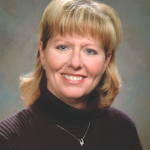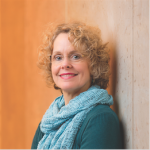I was in aerospace engineering at Penn State, and this goes back to 1965. If you check your record books you will find that the aerospace industry, Lockheed Martin being one of them, was going bankrupt. And I had a counselor at Penn State who talked about me and aerospace engineering and the fact that I was going to have a tough time getting a job if I stuck to that. And I said, “So what do you recommend?” And she said, “Well, one of the things you could look at …,” and she mentioned a bunch [of possible fields].
One of them was leisure-time industries and how they were growing. I said, “What’s leisure-time industries?” She said, “Well, we have a hospitality school here at Penn State.” I was not going to be able to do much in the aerospace world, and so I signed up for hotel and institution management, or something like that. And so that started my career.
And from there I left Penn State and ended up joining an organization which was one of the first third-party companies ever, called Leonard Hicks International Hotel Representatives. And my first job was in Washington, D.C., and I was a salesperson for Leonard Hicks, selling the association world and conventions to hotels around the world.
After Leonard Hicks, I ended up being the director of sales at the Hyatt in Monterey, Calif. Talk about memories. I remember Dean Martin was staying at the hotel, and we had a little golf course out back, and the general manager asked if I would take Dean over to the country club behind our hotel. This was in the morning. I drove Dean over. And we got to the clubhouse and Dean said, “Is the bar open?” And I said, “No, I don’t think so, but let me check.” So we had the guy come into the bar and ask Dean what he wanted. He said, “Give me some gin.” And the guy took what was like a water glass and put some gin in the bottom of it. And Dean said, “No, fill it up.” [Laughs.] He had a water glass full of gin that he drank right there on the spot before going out to play golf. Never forgot that.
Anyhow, I went from Monterey to San Jose, and was a director of sales at the San Jose Hyatt. Then from San Jose I opened the Hyatt Regency San Francisco. That was May of 1973. And then in ’78 I went to the corporate office to work for Joe Kordsmeier, who was the vice president of sales at the time. That was in Chicago.
When I joined Hyatt in 1970, there were literally five motels. That was it. And by the time I left in 1987, Hyatt had 150 hotels. Those were incredible, incredible days growing up in the industry. I just want you to put your history hat on and think what it was like to be working in San Francisco in the early- to late- ’70s. It was a flower-power scene that was nowhere else on Earth. [Laughs.] That was an incredible, incredible time.
Then I joined Disney. And I think my fondest memories of Disney were when my wife and I were stationed in Paris, preparing for the pre-opening of the Euro Disneyland project. That was an incredible time in both Susan’s and my life. And then I left Disney because I had the opportunity to become the president of the Chicago Convention & Tourism Bureau.
Living in Chicago was a dream. We were empty-nesters by that time. Our boys had gone away to college, and we were living in downtown Chicago with our living room looking out over the lake and our dining-room window looking right down State Street, right past where the old Playboy Mansion was. And our little back patio up on the 19th floor was looking out over the Sears tower. And then getting to know Mayor [Richard M.] Daley, too – that was a high point in my career.
And then I got the offer, which I first declined, to come to Columbus. But I offered to come in, at their expense, and kind of counsel them as to what they ought to be looking for, and learned about the community and met a lot of the leaders and saw a community that had huge potential that had not been realized. And if you know me, I am driven by challenges. And I ended up coming to Columbus and have had an incredible time being here in Columbus. It has been fun.
One of the things that I am most proud of is being part of what I will call the leadership transformation of Columbus. Because Columbus, when I got here, was very much an independent-projects-driven, silo-mentality, developer-run community that had very little to do with creating a future vision for our community. And through the past decade, I just feel very proud to have been a part of the transformation to very much a hugely collaborative, visionary, and strategic-driven community that is really taking this community to where it could and should be in the world-visitor market.
We also created what we call the Strategic Hotel Development Committee with our top community leaders, and we have opened the new Hilton [Columbus Downtown] that emanated from the discussions that took place over a period of about six years with that committee. And we created the Greater Columbus Sports Commission, which has really rocked this community with what they are bringing into this community. In general, what I think we have created here in Columbus is a new level of respect for the economic-development power of the visitor industry.
I cherish greatly the friendships that I built in this industry – and I am talking about both the customer world, where I have dear, dear friends, as well as the various staffs of all those places I told you about. I am so proud of the teams that we were able to put together, including here in Columbus. I would match this Columbus team with any CVB team in the country, and I really mean that sincerely.
When you look at the history of this industry when I first got in it, back in 1969, it was a wild and emerging industry, including the hotel side of it. And everything was up for grabs. Your creativity is what really promoted you as an individual. And I watched this industry become more and more professional over those many years that I have been in it. And although that is probably necessary in the world we live in today, it is also a little disappointing to see those relationships and the fun and all of what the industry was, morphing into what I call a more pragmatic business assessment. It is a different level of accountability. Much more professional. But I am not sure it is as much fun.

